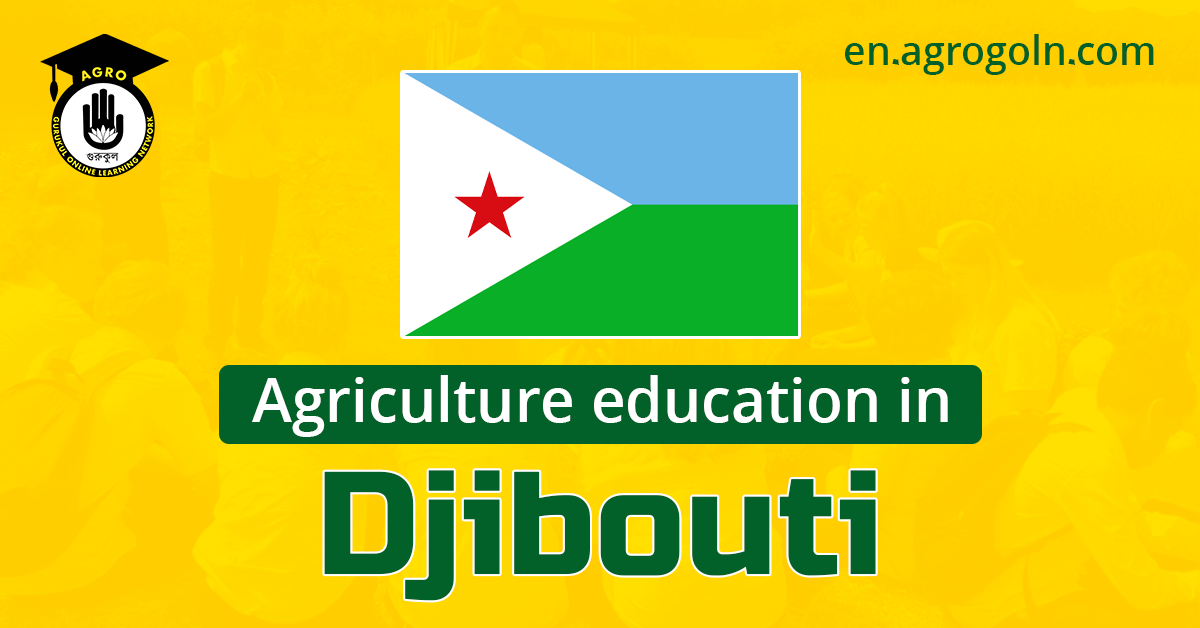Agriculture, while not the dominant sector in Djibouti due to its arid conditions and limited arable land, remains an essential component for food security and local subsistence. The education and training that relate to agriculture, however, play a significant role in understanding and harnessing techniques to optimize the scarce resources available. Agriculture education in Djibouti is about building capacities, developing sustainable methods, and promoting modern techniques that can improve productivity against the challenging environmental backdrop.
Historical Context
The Republic of Djibouti, located in the Horn of Africa, has faced recurring droughts and has limited natural resources for agriculture. Historically, nomadic pastoralism was the predominant livelihood, with families moving their livestock in search of water and pasture. The challenges of the environment meant that traditional knowledge and skills were honed over generations to adapt and survive.
However, with changing global conditions, urbanization, and economic transformations, there is a pressing need to formalize and upgrade this knowledge. Djibouti’s government recognizes the importance of revitalizing the agricultural sector and ensuring that the younger generation is equipped with the skills and knowledge to drive it forward.
Education System and Agriculture
Djibouti’s education system has been undergoing reforms over the years. While the primary focus has been on literacy and general education, there is an increasing emphasis on vocational and technical training, which includes agriculture.
1. Formal Education:
- Primary and Secondary Level: The curriculum at these levels offers basic knowledge about the environment, natural resources, and some insights into local agricultural practices. These are foundational years where students get acquainted with the significance of agriculture, albeit at a preliminary level.
- Tertiary Level: Institutions like the University of Djibouti offer specialized courses in related fields such as environmental sciences, biology, and more. While there isn’t a dedicated agricultural faculty, many of the scientific courses touch upon topics critical to understanding agriculture in an arid environment.
2. Vocational and Technical Training:
Recognizing the need for skilled workers and specialists in agriculture, there are initiatives to introduce vocational training centers. These centers focus on practical skills, from understanding soil quality and water conservation to learning about drought-resistant crops.
Collaborations and International Partnerships
Djibouti’s strategic location and its active role in international diplomacy mean that it benefits from several international partnerships. Organizations such as the Food and Agriculture Organization (FAO) and the World Bank have ongoing projects aimed at improving food security and agricultural output.
Many of these projects incorporate training components. For instance, workshops on sustainable agricultural practices, water-saving techniques, and modern farming methods are regularly organized. The knowledge transfer from international experts to local farmers is invaluable in a country where the margin for agricultural error is minimal.
Challenges in Agriculture Education
- Infrastructure: Djibouti faces a significant challenge in terms of infrastructure. While urban centers like Djibouti City have modern amenities, rural areas, where agriculture is predominant, lack fundamental facilities. This disparity affects the quality of education available to rural youth.
- Cultural Perspective: The pastoralist lifestyle, deeply rooted in Djiboutian culture, often doesn’t align with formal education. Convincing nomadic families of the long-term benefits of agriculture education can be challenging.
- Economic Constraints: With limited funding allocated to education in general and even less to specialized sectors like agriculture, resources are stretched thin. This limitation impacts the quality and reach of agriculture education.
- Climate Change: The increasing unpredictability of weather patterns due to climate change presents a moving target for agriculture education. What is taught today might become obsolete tomorrow, making it essential for continuous learning and adaptation.
The Way Forward
For Djibouti to truly harness the potential of its agricultural sector, a multi-pronged approach is needed.
- Investment in Infrastructure: It’s essential to develop infrastructure in rural areas, including schools, training centers, and research facilities.
- Curriculum Development: Collaborating with international agricultural experts can help in developing a curriculum tailored to Djibouti’s unique challenges.
- Community Engagement: Engaging community elders and leaders can help in promoting the importance of agriculture education among the youth.
- Continuous Learning: With the dynamic nature of the environment and global best practices, it’s crucial to focus on lifelong learning. Farmers and agricultural professionals should be encouraged to attend workshops and training sessions regularly.
- Technology Integration: Leveraging technology can play a pivotal role in modernizing Djibouti’s agriculture sector. From understanding weather patterns using satellite data to implementing drip irrigation, the integration of technology in agriculture education is essential.
Conclusion
While Djibouti faces an uphill battle in terms of its natural environment, the spirit and resilience of its people are undeniable. With the right focus on agriculture education and by harnessing both traditional knowledge and modern techniques, Djibouti can pave the way for a sustainable and prosperous agricultural future.
